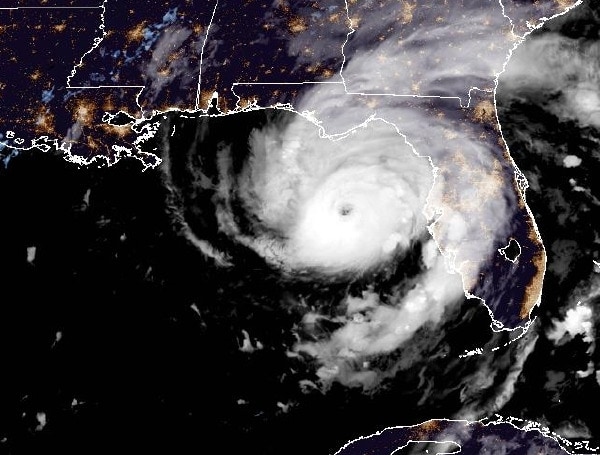
The Atlantic hurricane season of 2024 is predicted to be one of the most active and intense in history, according to experts at AccuWeather.
With warmer-than-average sea-surface temperatures and a transition from El Niño to La Niña conditions, all signs point to a hyperactive season with a higher risk of direct impacts on the United States.
“The 2024 Atlantic hurricane season is forecast to feature well above the historical average number of tropical storms, hurricanes, major hurricanes, and direct U.S. impacts,” AccuWeather Lead Hurricane Forecaster Alex DaSilva said.
Read: 2024 Hurricane Season Roof Preparation: Essential Steps To Protect Your Home
According to AccuWeather, warm water is one of the primary drivers of a hyperactive hurricane season, serving as fuel for tropical systems.
Warm Water and Rapid Intensification
One of the primary drivers for a hyperactive hurricane season is warm water, which serves as fuel for tropical systems. This year, sea-surface temperatures across the Atlantic basin, particularly in the Gulf of Mexico, the Caribbean, and the Main Development Region, are well above historical averages.
According to AccuWeather, current temperatures are comparable to those observed in March before the record-breaking hurricane seasons of 2005 and 2020.
The abundance of warm water not only promotes frequent storm development but also increases the potential for rapid intensification.
In recent years, historic hurricanes have been undergoing rapid intensification, such as Hurricane Laura in 2020, which rapidly intensified from a Category 1 to a Category 4 storm in just 24 hours.
Read: Hurricane Preparation For The Florida 2024 Storm Season
La Niña and Reduced Wind Shear
The transition from El Niño to La Niña in the Pacific Ocean plays a significant role in shaping the Atlantic hurricane season. La Niña conditions result in reduced wind shear over most of the Atlantic basin. Wind shear refers to the change in wind speed and direction with height, and high wind shear can disrupt the development and organization of tropical systems.
In contrast, low wind shear allows hurricanes to maintain their structure and strength. The faster the transition to La Niña occurs, the more active the hurricane season is likely to be. The presence of La Niña during the 2020, 2021, and 2022 Atlantic hurricane seasons correlated with near or above-average storm activity.
Predicted Number of Tropical Storms and Hurricanes in 2024
AccuWeather meteorologists forecast 20-25 named storms across the Atlantic basin for the 2024 storm season, including 8-12 hurricanes, 4-7 major hurricanes, and 4-6 direct impacts on the United States.
These numbers surpass the 30-year historical average of 14 named storms, 7 hurricanes, 3 major hurricanes, and 4 direct U.S. impacts.
However, with multiple factors favoring storm development, there is a possibility of even more than 25 named storms occurring this year.
AccuWeather Lead Hurricane Forecaster Alex DaSilva estimates a 10-15% chance of 30 or more named storms in 2024.
Additionally, AccuWeather predicts an Accumulated Cyclone Energy (ACE) of 175-225, surpassing the historical average of 123. ACE is a measure of the intensity and longevity of tropical systems throughout the year.
Regions at Highest Hurricane Risk in 2024
While all coastal areas should remain vigilant during the Atlantic hurricane season, certain regions face a higher risk of direct impacts in 2024.
According to AccuWeather, the Texas coast, Florida Panhandle, South Florida, and the Carolinas are areas with elevated risk.
These regions have historically experienced a higher frequency of tropical storm and hurricane landfalls. However, it is crucial for residents along the entire U.S. coast, including Puerto Rico and the Virgin Islands, to have a hurricane plan in place and be fully prepared for a direct impact.
Help support the Tampa Free Press by making any small donation by clicking here.
Android Users, Click To Download The Tampa Free Press App And Never Miss A Story. Follow Us On Facebook and Twitter. Sign up for our free newsletter.
